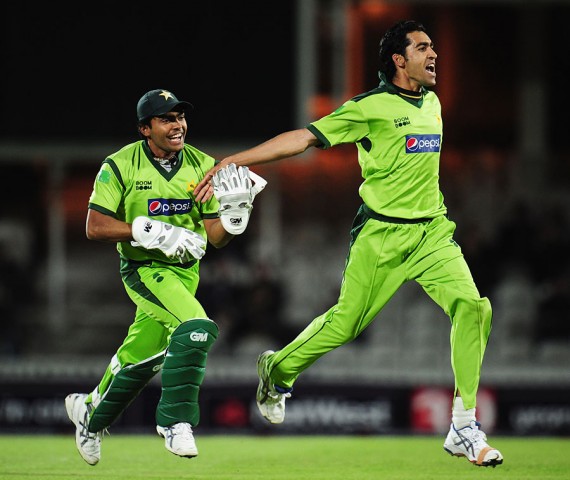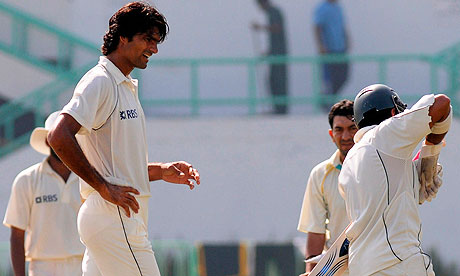There are four major questions to ask about the News of the World'ssting operation on the Pakistan cricket team.
Q1. Did the paper have prima facie evidence of wrongdoing?
Q2. Was it proportionate to offer so much money to (relatively) poorly-paid and young sportsmen?
Q3. Was the offer couched in such a way that the cricketers were unaware of the gravity of what they were being asked to do?
Q4. Was there a genuine public interest in exposing (alleged) sporting corruption?
So let's consider them one by one. My answers are tentative, and based on informed guesswork, because we do not have the facts. But they are the questions that deserve answers (and, arguably, a little more information from the paper).
A1. Given the nature of rumours about corruption within Pakistan cricket, it's highly likely that the paper's investigations editor Mazher Mahmood did, as he wrote yesterday, receive a tip-off.
He explained that "the crucial extra piece of information... was the nameMazhar Majeed, a millionaire businessman who acted as an agent for Pakistani players" (who also happens to own Croydon Athletic football club).
This sounds straightforward enough, and Mahmood does detail his meetings with Majeed at two London hotels, including (supposedly) verbatim - dare I say ball-by-ball? - accounts of their conversations.
A2. Majeed may be a millionaire, but the players are not. Now, I'd guess that many people would be tempted by £150,000 to do something which, on the face of it, appears relatively harmless.
Tossing down a couple of no-balls is no big deal, after all, though I readily concede that it could have been the thin end of the wedge.
If we accept Mahmood's account, then Majeed was just indulging in a dry run with the no-ball business. He claimed to have fixed a match in Australia and was clearly prepared to fix a Test match.
Again, if one accepts Majeed's statements at face value, £150k was a small sum for him to make. But the pay-outs promised to low-paid players should be seen in a different light.
Though it's possible to argue that the sums given to them would have been disproportionate, I don't think Mahmood or the News of the World could be certain how much each player would receive. So the paper is exonerated on this charge.
A3. We cannot be be sure of how the offer was couched to the players by Majeed. Did they really do it for the money, for instance, or because it seemed like a bit of harmless horse-play?
Even if they were doing it to make money, they may well not have seen it as a form of cheating because there's a supplementary question to ask here: is the climate of corruption so deep within Pakistan cricket that this was viewed as unexceptional?
A4. I like sport and I like cricket. I support Essex and England. I understand the desire to win and the passion it arouses in both players and spectators.
Sport is meaningless if it is fixed because it is, at its heart, all about competition. Otherwise, there is no point to it.
People who do not like sport may well take a different view. They may see it as nothing more than a branch of the entertainment industry and, as such, fixing what happens is no big deal. So where, they might ask, is the public interest in exposing it?
Though I have also grown increasingly cynical in recent years about corruption in sport (such as the use of performance-enhancing drugs), I cannot agree.
I do believe that there is a genuine public interest in exposing sporting corruption (though I readily concede it's less important than, say, political and financial corruption).
All of this suggests, does it not, that I am relaxed about the News of the World's story? Well, on the basis of what we know and can surmise, I am.
Of course, there is much that we do not know and we also have to accept that Mahmood's written account of his meetings with Majeed is entirely truthful and comprehensive. It is possible that there were crucial omissions and also possible that there were other enticements offered to Majeed and the players.
But I always say that journalistic investigations that involve subterfuge and entrapment - as with intrusions into privacy - need to be viewed on a case-by-case basis.
However critical I am of the News of the World and Mahmood for their over-reliance on stings, they do not get it wrong every time. The Pakistan exposure appears to be justified.







